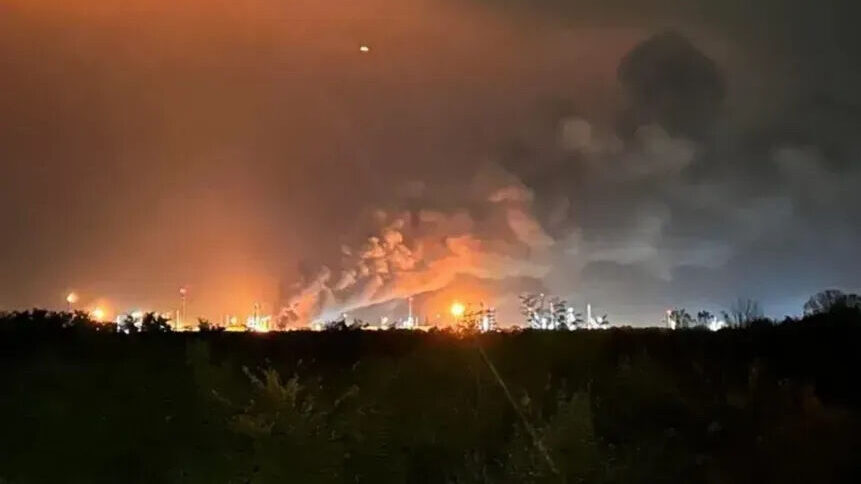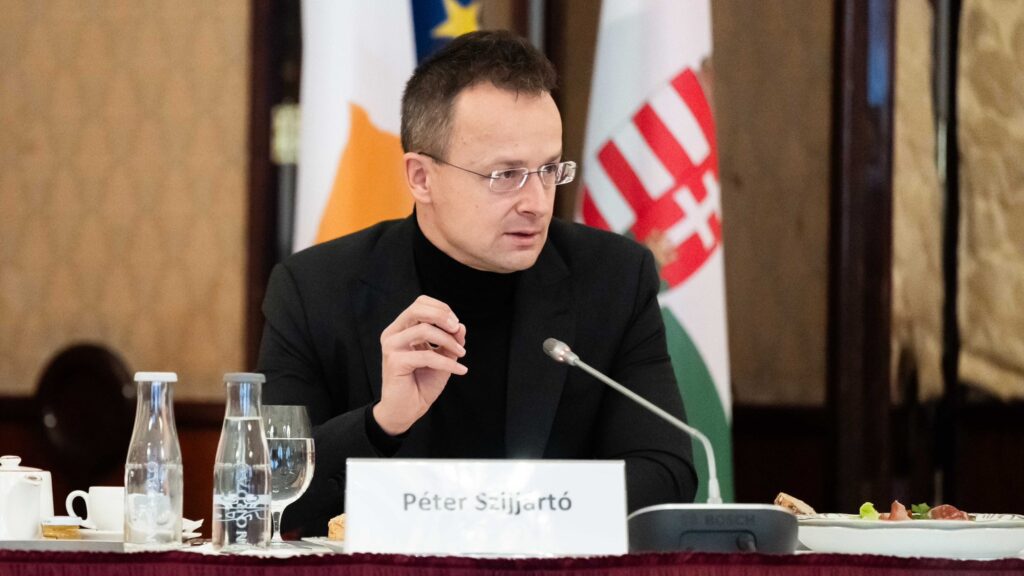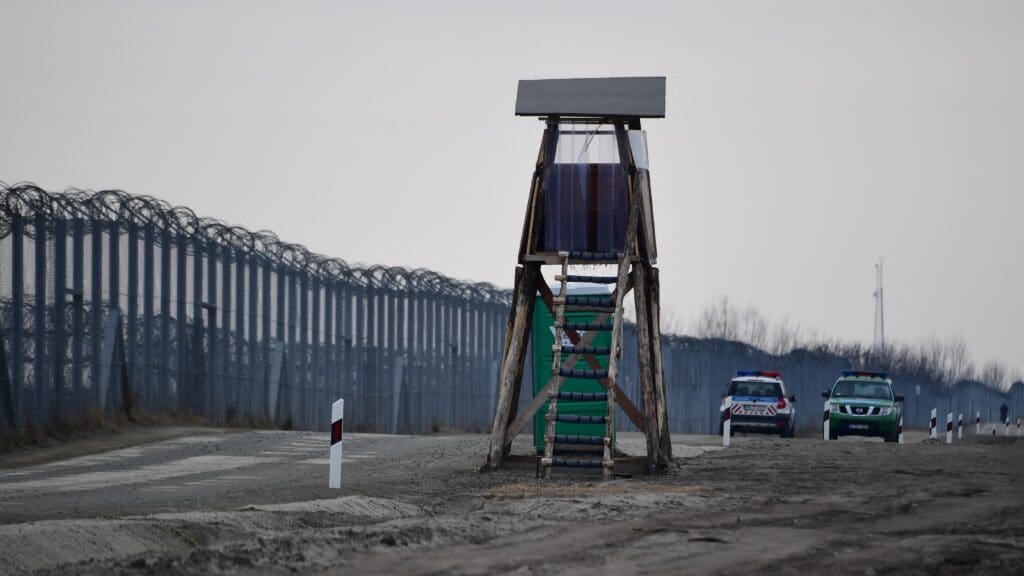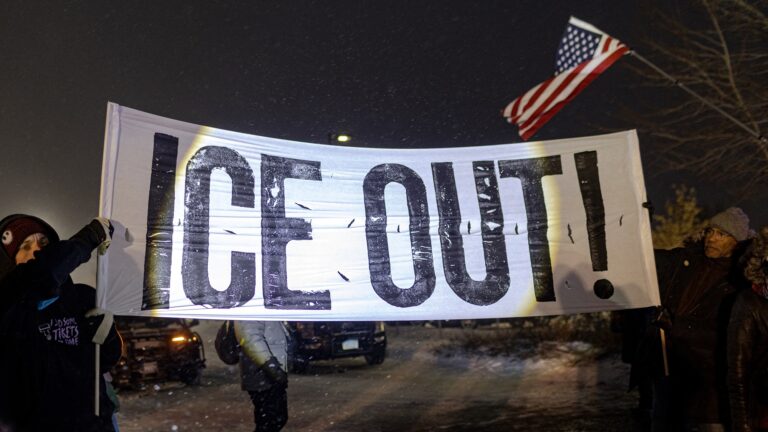Explosions shook a Hungarian and a Romanian oil refinery on Monday, 20 October. Investigations are underway in both cases, and many circumstances remain unknown.
The first explosion hit the Petrotel-Lukoil refinery in Ploieşti, Romania, at about 11.30am local time on Monday. Media reports say the blast occurred in the industrial sewerage system, with the hatch of a sewerage well being ejected during maintenance work. At the time, the refinery platform was undergoing a major shutdown for repairs. The Petrotel-Lukoil plant is one of Romania’s largest oil-processing facilities and is owned by the Russian company Lukoil.
The second, similar incident occurred on Monday evening at MOL’s refinery in Százhalombatta, Hungary. Officials said the fire was contained by Tuesday morning, but operations were still suspended and investigations were continuing; the primary cause of the explosion remained unknown at the time of writing. The Százhalombatta refinery is a key node in both the Hungarian and Central European fuel networks, processing crude delivered via the Druzhba pipeline from Russia. Oil refined at Százhalombatta supplies mainly domestic markets but also, in significant quantities, Slovakia.
Anatolij Sharij on X (formerly Twitter): “In 24 hours, serious incidents occurred at two oil refineries: on Monday night a fire broke out at the MOL plant in Százhalombatta (Hungary), and several hours earlier an explosion shook the Petrotel-Lukoil refinery in Romania.The MOL plant, which is the largest and most modern… pic.twitter.com/xghOedeXP5 / X”
In 24 hours, serious incidents occurred at two oil refineries: on Monday night a fire broke out at the MOL plant in Százhalombatta (Hungary), and several hours earlier an explosion shook the Petrotel-Lukoil refinery in Romania.The MOL plant, which is the largest and most modern… pic.twitter.com/xghOedeXP5
War on Energy
The timing of the two incidents immediately fuelled suspicion of possible sabotage. On Monday, EU energy ministers backed the European Commission’s proposal to phase out Russian energy from member states’ energy mixes by 2028. Under the plan—which will next be submitted to the European Parliament for approval—EU imports of Russian gas, LNG, and nuclear-sourced electricity would be prohibited for member states. However, some landlocked countries, such as Hungary and Slovakia, which remain dependent on Russian pipeline oil due to geography and infrastructure constraints, would be granted limited exemptions.
Ukraine is also pressuring European countries, particularly Hungary, to phase out Russian oil imports. Kyiv has repeatedly targeted the Druzhba pipeline in recent years, provoking tense exchanges between Hungarian and Ukrainian officials; Hungary even banned the commander of the unit responsible for these strikes from entering the country.
‘Ukraine has also been implicated in sabotage attacks on Russian energy infrastructure in allied countries’
Since mid-2025, Ukraine has also waged a sustained campaign of long-range drone strikes against Russian refining and energy infrastructure deep inside Russian territory. Analysts credit these attacks with knocking out up to 17 per cent of Russia’s refining capacity (around 1.2 million barrels per day) in August, rising to roughly 21 per cent (about 1.4 million b/d) by the end of the month. The strikes created production bottlenecks, caused domestic fuel shortages in Russia, pushed gasoline prices higher, and significantly reduced Russia’s fuel exports—eroding an important revenue stream for Moscow.
Ukraine has also been implicated in sabotage attacks on Russian energy infrastructure in allied countries. Recently, Warsaw rejected the extradition of a Ukrainian citizen accused of involvement in the 2022 sabotage of the Nord Stream pipelines. A Polish court turned down the German request, saying the charges were ‘too general’ and that the incident occurred in ‘international waters’—a ruling some observers framed in the context of a ‘just war’.
Polish Prime Minister Donald Tusk argued that extradition would not be ‘in Poland’s national interest,’ noting that, in his view, the problem for Europe, Ukraine, Lithuania, and Poland is not that Nord Stream 2 was blown up but that it was built in the first place. The statement provoked outrage: Hungarian Minister of Foreign Affairs and Trade Péter Szijjártó called it ‘scandalous’, writing on X that ‘According to Poland, if you don’t like infrastructure in Europe, you can blow it up. With this, they gave advance permission for terrorist attacks in Europe. Poland has not only released but is celebrating a terrorist.’
Péter Szijjártó on X (formerly Twitter): “Scandalous: according to Poland, if you don’t like an infrastructure in Europe, you can blow it up. With this, they gave advance permission for terrorist attacks in Europe. Poland has not only released but is celebrating a terrorist-this is what European rule of law has come to. https://t.co/4JI3N6GAJ0 / X”
Scandalous: according to Poland, if you don’t like an infrastructure in Europe, you can blow it up. With this, they gave advance permission for terrorist attacks in Europe. Poland has not only released but is celebrating a terrorist-this is what European rule of law has come to. https://t.co/4JI3N6GAJ0
Related articles:







